Your gut health plays a big role in how your whole body feels. It's like a warning system that can tell you if you're missing important minerals. When your body doesn't have enough minerals, your gut often tries to let you know. Let's look at seven ways your gut might be telling you about mineral deficiencies, and how your gut health is connected to the minerals in your body.
Key Takeaways
- Bloating and digestive issues may indicate magnesium or zinc deficiency
- Persistent fatigue could signal low iron or magnesium levels
- Mood swings and cognitive issues may be linked to zinc or selenium deficiency
- Frequent illnesses might suggest inadequate zinc, selenium, or copper intake
- Slow healing and skin problems can be associated with zinc or copper deficiency
- Muscle cramps often relate to low magnesium or potassium levels
- Irregular heartbeat may indicate potassium or magnesium deficiency
1. Bloating and Tummy Troubles
If your belly often feels puffy or uncomfortable, it might be a sign that you're missing some important minerals. Minerals like magnesium and zinc help your digestive system work smoothly. When you don't have enough, you might feel bloated or have stomach aches more often. Magnesium helps your muscles relax, including the ones in your gut. Zinc helps make digestive enzymes and keeps your intestines healthy.
Products like MicroBiome Restore™ and X-Cellerator™ Full Spectrum Trace Minerals can help support your gut health and provide the minerals your body needs. These supplements are made to help with mineral deficiencies and make your gut work better.
2. Feeling Tired All the Time
If you're always feeling sleepy, even after a good night's rest, your body might be telling you it needs more iron or magnesium. These minerals help your body make energy. Without enough of them, you might feel tired and weak. Iron helps carry oxygen around your body, and magnesium is involved in many processes that make energy in your cells.
Iron is super important for carrying oxygen around your body. When you don't have enough, you might feel tired all the time. Foods like red meat, spinach, and beans can help boost your iron levels. Eating foods with vitamin C at the same time can help your body use the iron better.
3. Mood Swings and Brain Fog
Sometimes, not having enough minerals can affect how you feel and think. If you're having trouble concentrating or your mood keeps changing quickly, it might be because of low levels of minerals like zinc or selenium. These minerals help your brain work properly and keep your mood stable.
Eating foods like nuts, seeds, and fish can help give your body the zinc and selenium it needs. Brazil nuts are great for selenium, and things like pumpkin seeds and beef are good for zinc. Remember, having a healthy gut can also help your mood, so eating a balanced diet is important.
4. Weak Immune System
If you're getting sick a lot, your gut might be telling you it needs more minerals to keep your immune system strong. Minerals like zinc and selenium are really important for fighting off germs. Zinc helps your immune cells work better, and selenium protects these cells from damage.
Copper is another mineral that helps your immune system. You can find it in foods like shellfish, nuts, and whole grains. Adding these to your diet can help boost your body's defenses. Having a healthy gut with good bacteria can also help your immune system work better.
5. Slow Healing and Skin Problems
If cuts and bruises take a long time to heal, or if your skin is always dry and itchy, it could be a sign of mineral deficiency. Zinc and copper are really important for healthy skin and fast healing. They help your body make new skin and blood vessels, which are needed for healing.
The Gut Essentials Protocol from BioPhysics Essentials can help provide your body with the minerals it needs for healthy skin and faster healing. This set of products is made to help your gut work better, which can also help your skin look and feel healthier.
6. Muscle Cramps and Weakness
If your muscles often feel sore or you get cramps a lot, especially at night, it might be because you need more magnesium or potassium. These minerals help your muscles work properly. Magnesium helps your muscles relax, and potassium helps them contract.
Manganese is another mineral that's important for your muscles and bones. You can find it in foods like nuts, whole grains, and leafy green vegetables. Eating a variety of these foods can help keep your muscles healthy and strong.
7. Irregular Heartbeat
If your heart sometimes feels like it's beating too fast or skipping beats, it could be a sign that you need more minerals like potassium and magnesium. These minerals help keep your heart beating steadily. They work together to help your heart muscles contract properly.
The X-Cellerator™ Full Spectrum Trace Minerals can help provide your body with these important minerals to support heart health. This supplement has a mix of minerals that can help your heart and other parts of your body work better.
How to Get More Minerals in Your Diet
Eating a balanced diet with lots of different foods is the best way to get all the minerals your body needs. Here are some tips to help you get more minerals from your food:
Key Tips for Increasing Mineral Intake
- Eat lots of colorful fruits and vegetables, especially dark green leafy ones
- Include whole grains like brown rice and oats in your meals
- Snack on nuts and seeds
- Eat lean meats and fish regularly
- Try beans and lentils for plant-based minerals
- Consider supplements like X-Cellerator™ if you think you're not getting enough minerals from food
- Drink plenty of water and add a pinch of sea salt sometimes
- Use herbs and spices in your cooking
- Try fermented foods to help your body absorb minerals better
- Eat vitamin C foods with iron-rich foods to help your body use the iron
If you're worried about not getting enough minerals, it's a good idea to talk to a doctor or a dietitian. They can help you figure out if you need more minerals and the best way to get them, whether through food or supplements.
Conclusion
Your gut health is closely connected to the minerals in your body. By paying attention to these seven signs, you can better understand what your body needs. Remember, eating a variety of healthy foods is the best way to get the minerals you need. Products like MicroBiome Restore™ and X-Cellerator™ Full Spectrum Trace Minerals can also help support your gut health and mineral balance.
It's important to think about how different minerals work together in your body. Sometimes, having too much of one mineral can make it hard for your body to use another. This is why it's good to get advice from a doctor or dietitian if you're thinking about taking supplements.
If you're worried about not having enough minerals, don't be afraid to talk to a healthcare professional. They can help you make a plan that's right for you, based on your health and lifestyle. Remember, taking care of your mineral needs isn't just about fixing problems – it's about helping your whole body stay healthy for a long time.

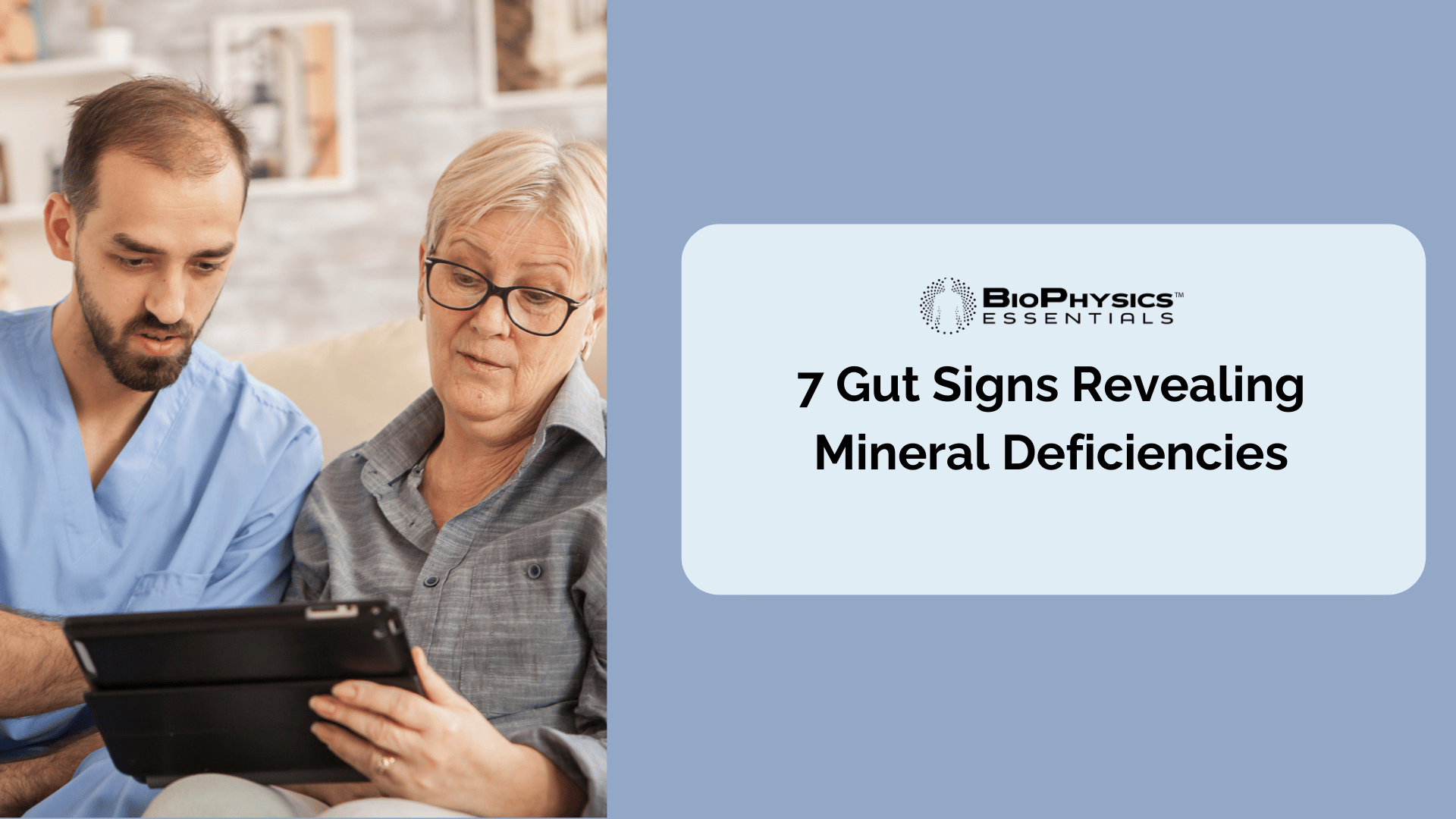
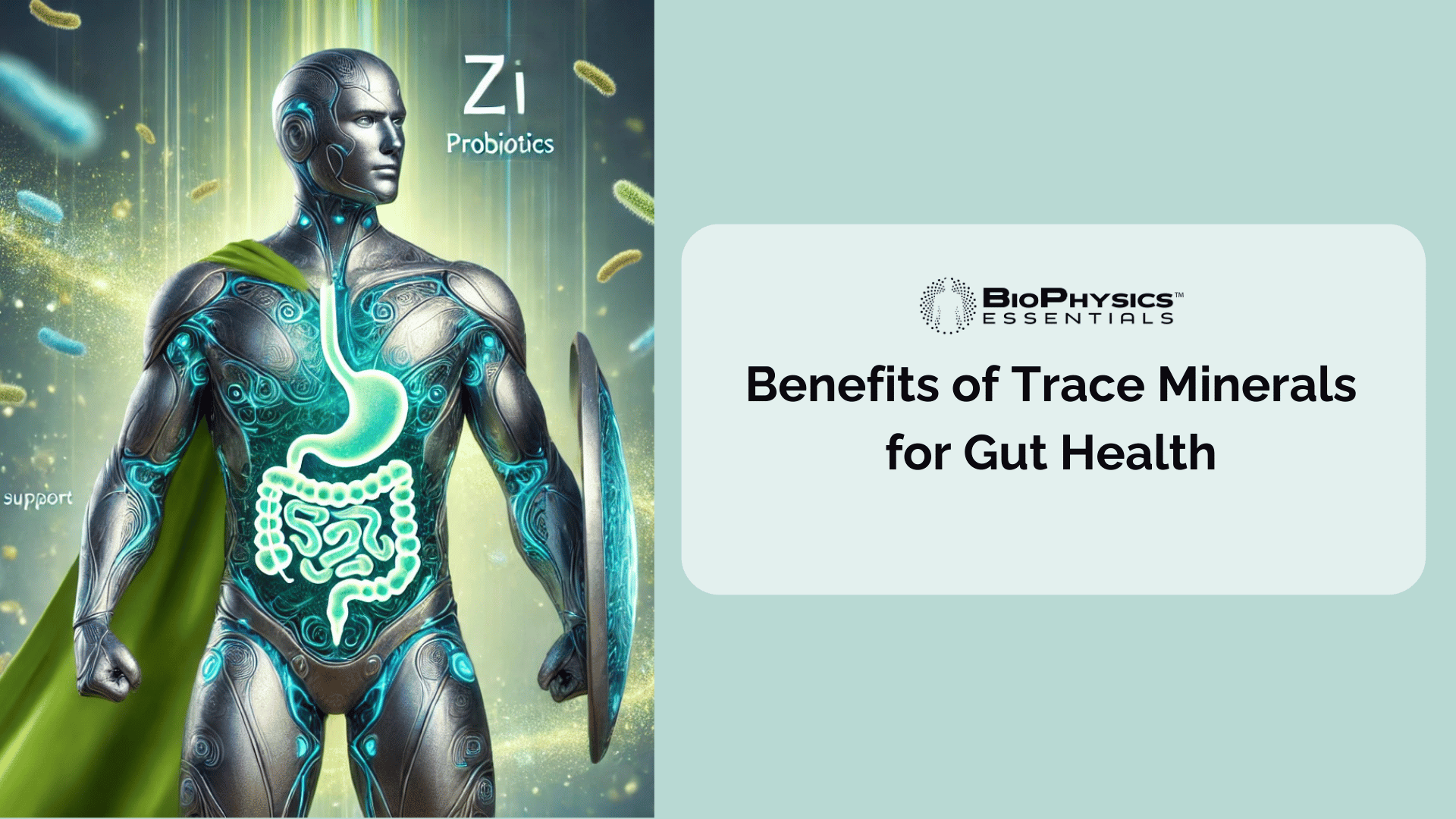
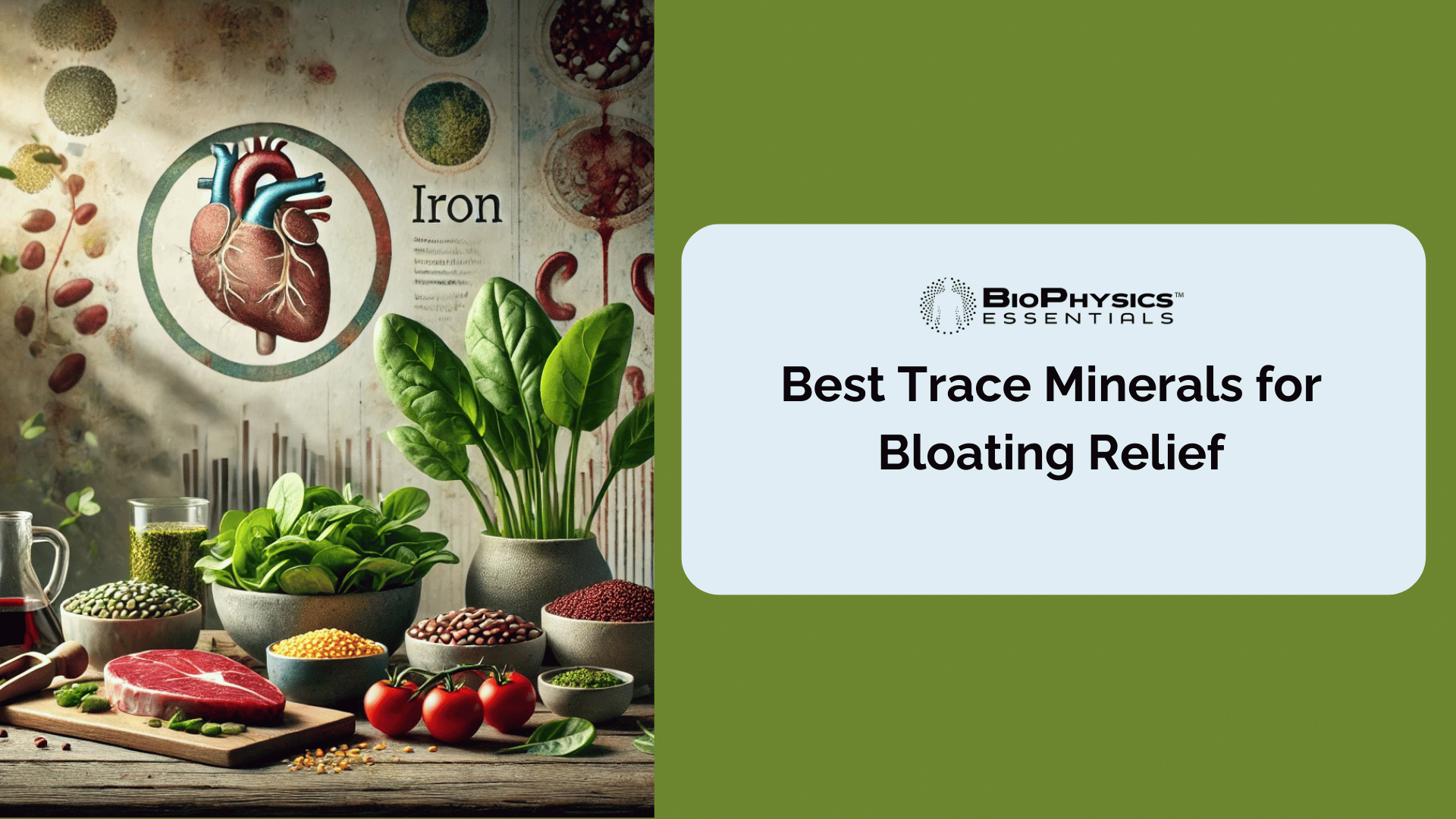
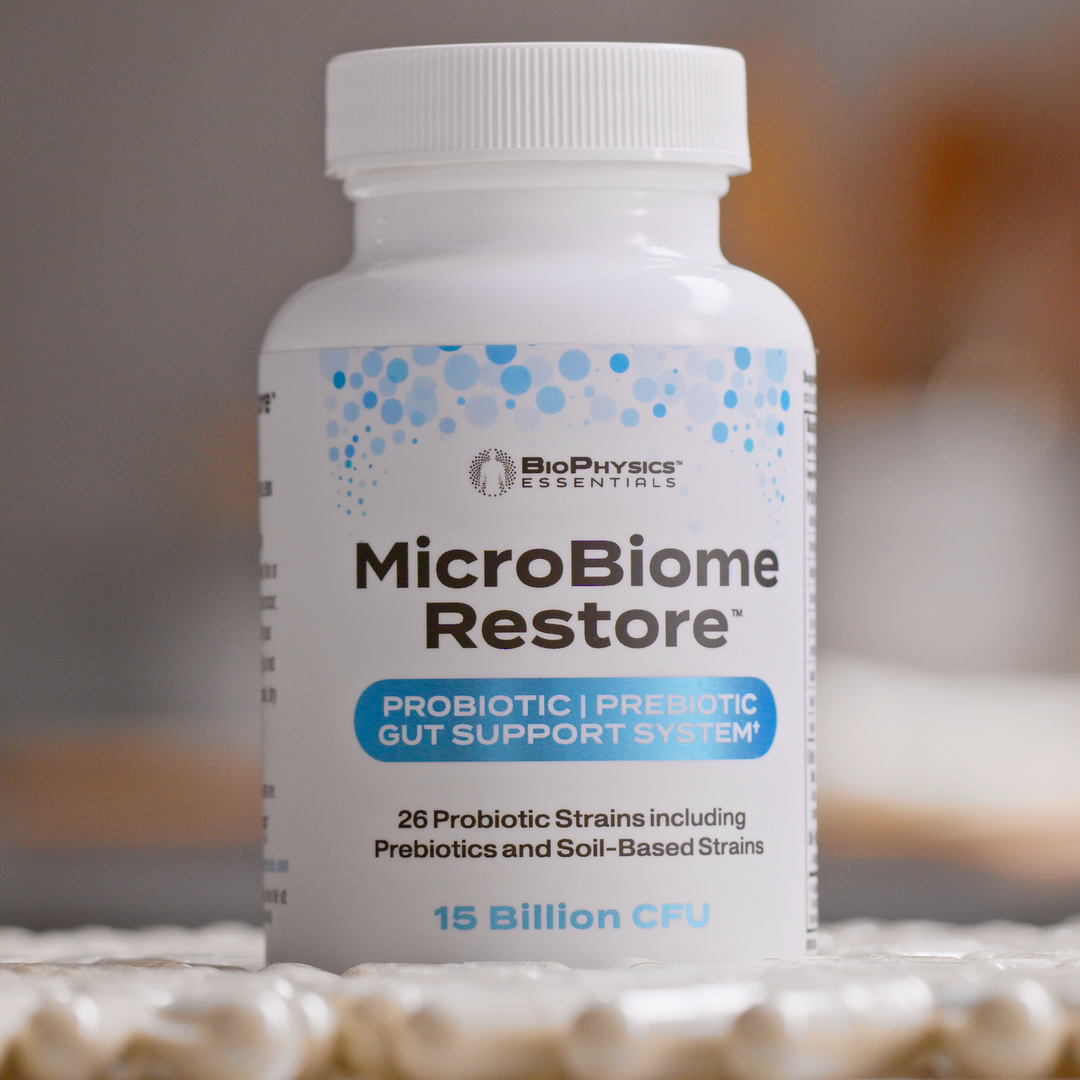
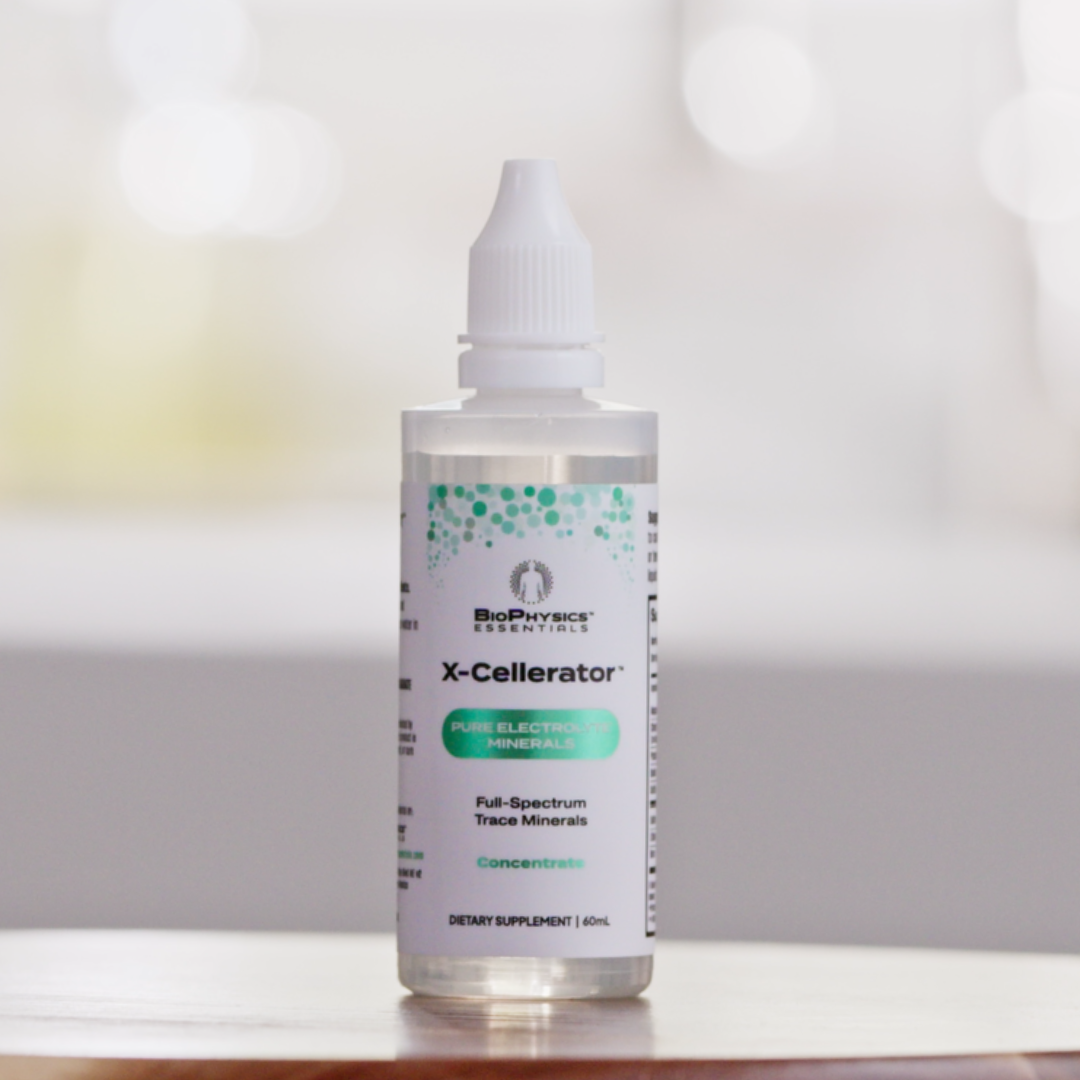




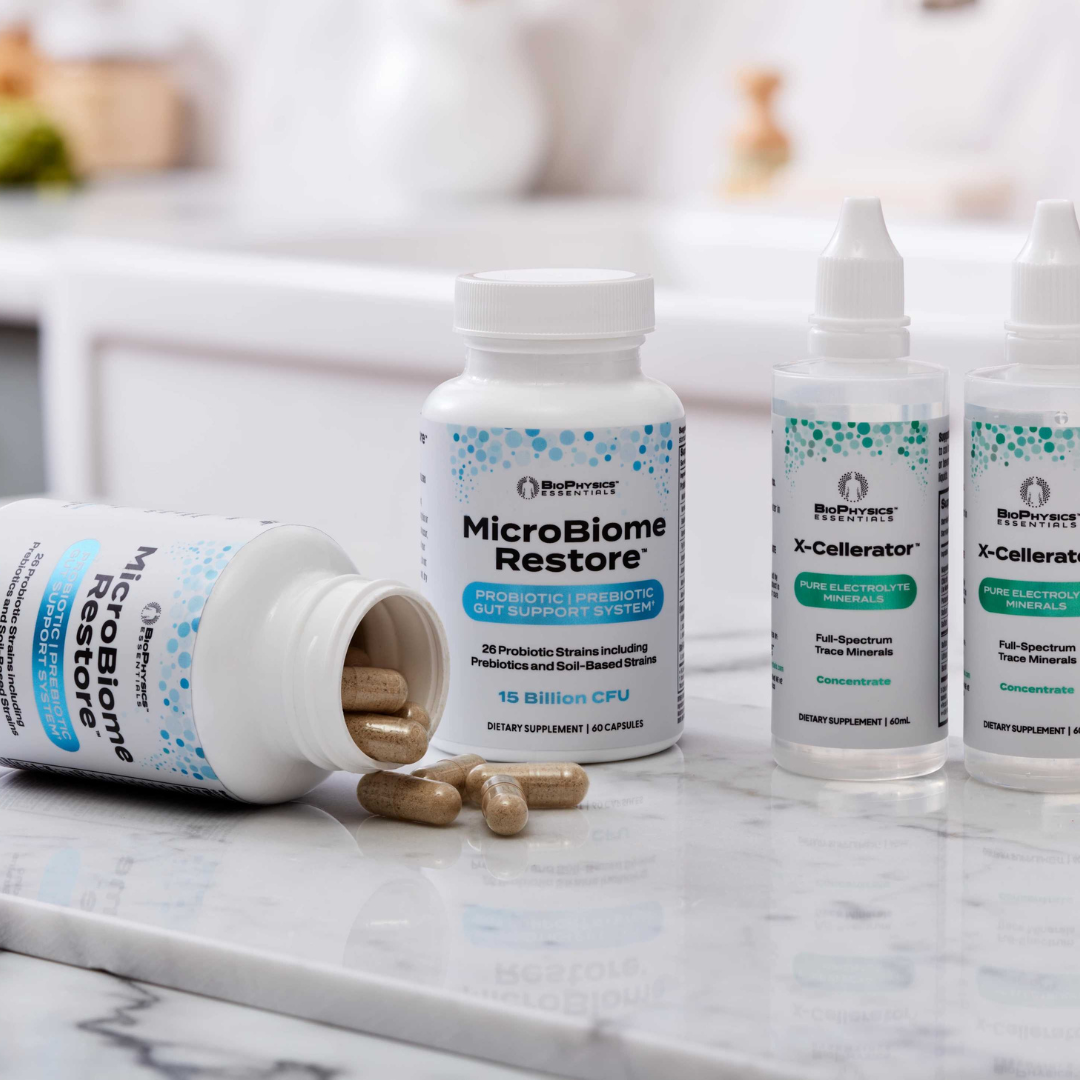

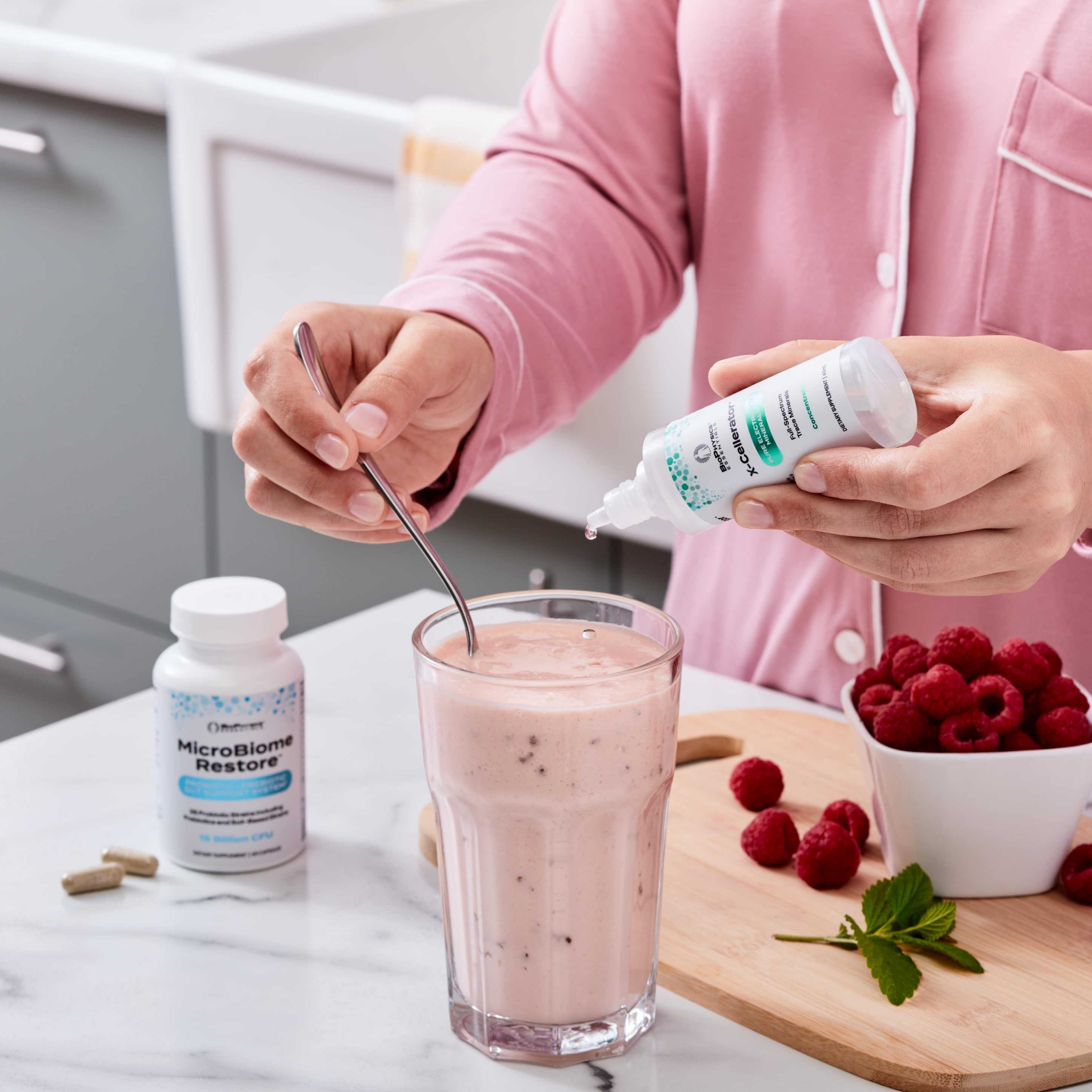

Share and get 15% off!
Simply share this product on one of the following social networks and you will unlock 15% off!